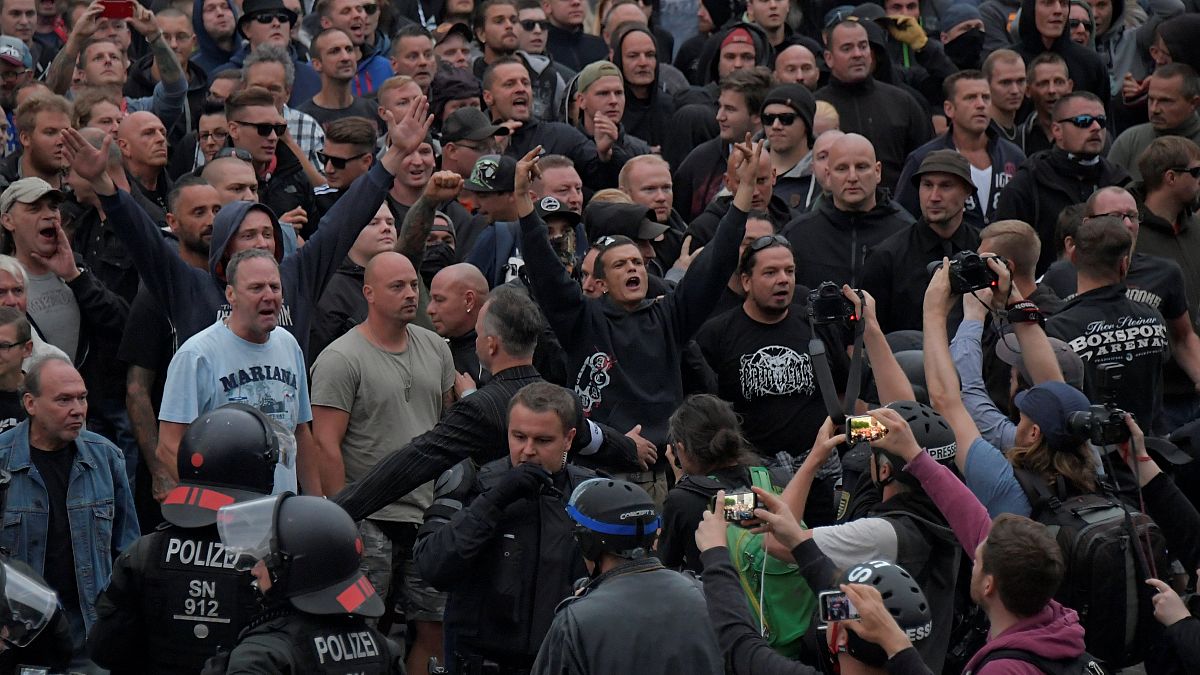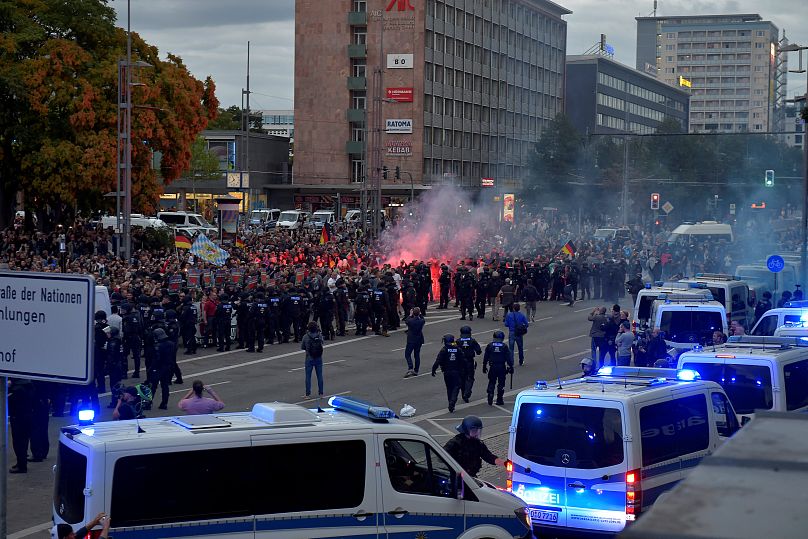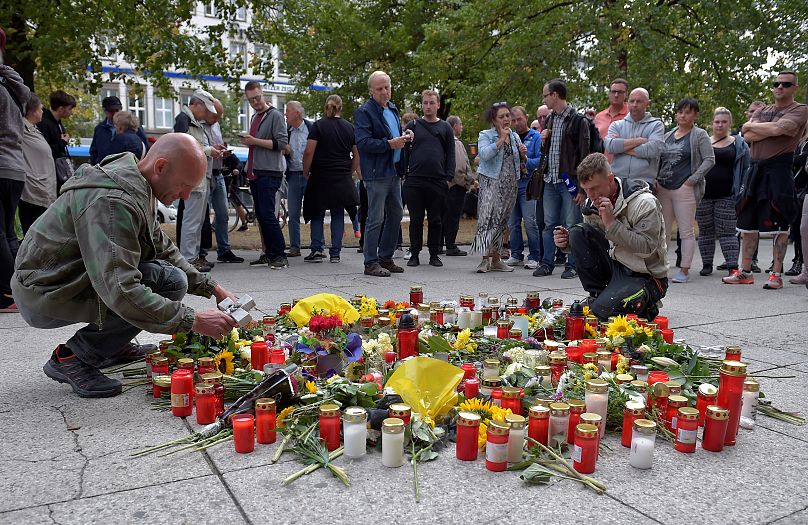Germany’s top security official has offered to send police reinforcement to Saxony authorities after violence erupted at Monday's clashes between far-right demonstrators and counterprotesters in the eastern city of Chemnitz.
Germany’s top security official has offered to send police reinforcement to Saxony authorities after violence erupted at Monday's clashes between far-right demonstrators and counterprotesters in the eastern city of Chemnitz.
The demonstrations were sparked by the fatal stabbing of a 35-year-old German man on Sunday.
“The police in Saxony is in a difficult situation,” said Interior Minister Horst Seehofer. “Should it be requested, the federal government will provide police support.”
Far-right demonstrators were heard chanting “More Power for Germany,” “Freedom for Germany,” and “Merkel must leave” while a few metres away left-wing counterprotesters chanted: “No place for Nazi propaganda,” said Euronews correspondent Emmanuelle Chaze.
Authorities also launched legal proceedings against 10 people for performing Nazi salutes, police said on Tuesday.
How events unfolded on Sunday
A 22-year-old Syrian man and a 21-year-old Iraqi man were arrested by Chemnitz police on suspicion of stabbing a man to death at a street festival early Sunday.
Prosecutors said the killing was preceded by a verbal confrontation that escalated. It remains unclear what triggered the verbal fight between the men.
Some 800 demonstrators took to the streets on Sunday to protest the stabbing.
Numbers increased exponentially on Monday when about 6,000 far-right supporters marched through central Chemnitz, including protesters from out of the state, said the interior minister.
“I am deeply saddened by this killing. The concern of the population is understandable,” Seehofer said in a statement Tuesday. “But I want to say clearly that under no circumstances does this justify a call to violence or violent riots.”
German political scientist Werner Patzelt told Euronews that the Chemnitz protests would give more momentum to the far-right Alternative for Germany (AfD): "I fear that tensions within our society between those in favour of migration and those opposing it will be strengthened," he said, adding that the public discourse will become more "poisoned" than before.
Saxony officials also blamed far-right groups for spreading false information on social media to mobilise their supporters to the protests.
"We believe that at least some of the calls that were circulated online (to join the protests) were based on false information, on fake news," Michael Kretschmer, the premier of Saxony, said at a news conference in the state capital Dresden.
Kretschmer said a report circulated widely on social media that the man who was stabbed had been defending a woman from migrants, adding that there was no evidence to support that claim.
Merkel’s response
Angela Merkel’s spokesman said Germany would not tolerate “vigilante justice” in a statement.
"We don't tolerate such unlawful assemblies and the hounding of people who look different or have different origins, and attempts to spread hatred on the streets," Merkel's spokesman Steffen Seibert told a regular news briefing.
"That has no place in our cities and we, as the German government, condemn it in the strongest terms," he said. "Our basic message for Chemnitz and beyond is that there is no place in Germany for vigilante justice, for groups that want to spread hatred on the streets, for intolerance and for extremism."
But Patzelt said that the protests would be an "additional nail on the coffin" of Chancellor Merkel's government.
"The government's attitude will not lead to a solution of the basic problems of migration and lack of integration policies," he said.
Reactions from political actors
Tweeting about Sunday's incident, AfD politician Markus Frohnmaier said: "If the state is no longer to protect citizens then people take to the streets and protect themselves. It's as simple as that!"
Martina Renner, a Left party lawmaker, accused the far-right of trying to exploit a murder for its own political ends.
"A terrible murder, the background to which is still unclear, is being instrumentalised in the most repugnant way for racist riots in Chemnitz," she tweeted.
Saxony: Germany’s hotbed of anti-immigrant sentiment
Saxony has historically been the cradle of anti-migrant sentiment in Germany.
The arrival of thousands of migrants from the Middle East during Merkel’s 2015 open door policy fueled support for far-right groups such as PEGIDA — a right-wing political movement founded in Dresden in 2014 — and the AfD. Last year, the far-right party received almost a quarter of the vote in Chemnitz.
Patzelt explained that for many in eastern Germany, immigration was simply imposed on them "against their will".
"They have a deep resentment against the federal government, the Chancellor, and the whole political class who they see as responsible for the influx of immigrants into Germany," he said.




